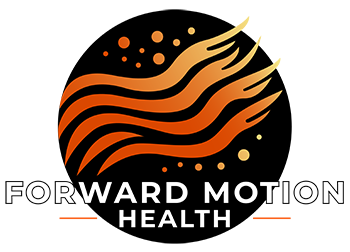Depression is a pervasive mental health condition that affects millions of people worldwide. In Texas, the need for effective and compassionate treatment options has never been greater.
If you or a loved one is struggling with depression, help is available. Forward Motion Health offers comprehensive, personalized treatment programs designed to help individuals regain their sense of purpose, hope, and vitality.
- Persistent feelings of sadness, emptiness, or hopelessness
- Loss of interest or pleasure in activities once enjoyed
- Changes in appetite and weight (loss or gain)
- Difficulty sleeping or oversleeping
- Fatigue or lack of energy
- Feelings of worthlessness, guilt, or self-blame
- Difficulty concentrating, making decisions, or remembering things
- Restlessness or irritability
- Physical symptoms such as headaches or stomach problems
- Thoughts of death, suicide, or self-harm
If you or someone you know is experiencing these symptoms, seeking professional help is a critical step toward recovery.
Different Types of Depression
- Major Depressive Disorder (MDD): Characterized by persistent and intense feelings of sadness and loss of interest.
- Persistent Depressive Disorder (PDD): A long-term form of depression lasting for at least two years.
- Seasonal Affective Disorder (SAD): Depression that occurs during specific seasons, usually winter.
- Postpartum Depression: Experienced by some women after childbirth, often accompanied by feelings of inadequacy or detachment from the baby.
- Bipolar Disorder: Episodes of depression alternating with periods of mania or elevated mood.
- Situational Depression: Triggered by a specific event or situation, such as grief, trauma, or a major life change.
Understanding the type of depression you or your loved one is facing can help guide the treatment process and ensure more targeted care.
Contact Our Montgomery Based Wellness Center
What Is a Depression Treatment Program?
Therapy Treatment for Depression
CBT is a widely used and highly effective approach to treating depression. It focuses on identifying negative thought patterns and replacing them with healthier, more constructive ways of thinking. CBT empowers individuals to regain control over their thoughts and emotions, fostering a greater sense of self-awareness and confidence.
DBT is particularly effective for individuals struggling with intense emotions and self-destructive behaviors. This therapy combines mindfulness techniques with skills training in emotional regulation, distress tolerance, and interpersonal effectiveness. DBT helps individuals navigate challenging situations and improve their overall emotional health.
Experiential therapy incorporates activities such as art, music, and movement to help individuals process emotions and explore their inner world in nontraditional ways. These creative approaches can be especially beneficial for those who struggle to express themselves verbally.
Depression doesn’t just affect the individual, but their entire family. Family therapy provides a safe space for loved ones to communicate, understand each other’s perspectives, and learn strategies to support the individual in recovery. Strengthening family relationships can be a key component of long-term healing.
Group therapy offers a supportive environment where individuals can connect with others facing similar challenges. Sharing experiences and hearing others’ stories fosters a sense of community and reduces feelings of isolation. It also provides valuable opportunities to practice social skills and learn from others’ insights.
One-on-one therapy sessions allow individuals to work closely with a therapist to address their unique needs and goals. This personalized approach can help uncover underlying issues, develop coping strategies, and build a strong foundation for recovery.
Motivational interviewing is a client-centered approach that helps individuals find internal motivation to make positive changes in their lives. This technique can be particularly effective for those who feel ambivalent about seeking treatment or making lifestyle adjustments.
Physical health and mental health are deeply interconnected. Incorporating wellness practices into depression treatment can enhance overall well-being and support long-term recovery. At Forward Motion Health, health and wellness are integral to the treatment process.
Depression Treatment at Forward Motion Health
Forward Motion Health’s wellness center is a serene space designed to promote relaxation, rejuvenation, and holistic healing. Here, individuals can participate in various wellness activities that enhance their mental and physical health.
Cold plunge therapy involves immersing the body in cold water to reduce inflammation, improve circulation, and boost mental clarity. This practice can also increase the production of endorphins,natural mood elevators that occur within the body.
Spending time in a sauna can help alleviate symptoms of depression by reducing physical tension and promoting a sense of calm. Sauna therapy promotes detoxification, relaxation, and stress relief.
Meditation is a powerful tool for managing stress, improving focus, and cultivating mindfulness. Regular meditation practice can help individuals develop a greater sense of self-awareness and emotional regulation, both of which are essential for overcoming depression.
Yoga combines physical movement, breathwork, and mindfulness to promote overall well-being. This practice helps individuals connect with their bodies, release tension, and build inner strength, making it an excellent complement to traditional therapy for depression.
Exercise is a natural mood booster that releases endorphins and reduces stress. Forward Motion Health offers fitness programs tailored to each individual’s abilities and preferences, helping them build a routine that supports their mental health.
